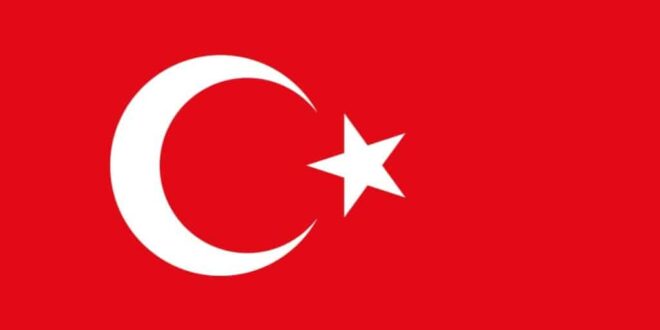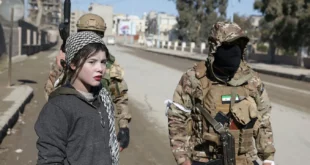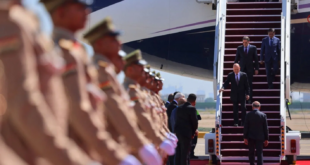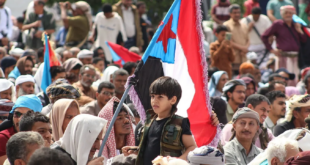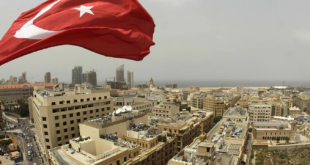Turkish President Recep Tayyip Erdogan seeks a role for Turkey in Gaza’s post-war reconstruction if not governance, and the Biden administration appears ready to accede to this request. Others also see Turkish involvement after the conflict as a fait accompli.
“It’s tough to imagine any long-term solution to the Gaza situation without regional players like Turkey playing a role, either as a guarantor—as they’ve talked about—or certainly in the rebuild,” retired US Ambassador to Turkey Jeff Flake stated in a recent interview.
However, rather than welcome Turkey, Washington should be wary. The problem is not only based on Erdogan’s ideological sympathy for Hamas but also his willingness to use the Turkish paramilitary SADAT to act on his behalf.
In 2012, Adnan Tanriverdi, an Erdogan confidant and the highest-ranking officer to be purged from the Turkish military for Islamist proclivities following the 1997 soft coup, founded SADAT alongside nearly two dozen military colleagues with similar sympathies. SADAT’s efforts on Erdogan’s behalf during the 2016 coup attempt by some Turkish Armed Forces factions reinforced the president’s confidence in the private military company (PMC).
SADAT’s website states that it provides defense and security consulting, military and internal security training, and logistics services for armed forces and police, including maintenance and repair systems. The organization also says it can procure weapons and explosives for its clients.
Like Russian President Vladimir Putin and the Wagner Group, SADAT allows Erdogan to further Turkey’s interests while maintaining some plausible deniability. The chief difference between Wagner and SADAT is ideology. SADAT is unabashedly Islamist. Its stated mission includes the desire to form an alliance of Islamic countries that takes its place among the world’s superpowers. Tanriverdi also called for the creation of a joint Islamic army.
SADAT provides an avenue for arranging military security and training to organizations aligned with Islamist ideologies in Libya, Azerbaijan, West Africa, Syria, and Iraq. The organization says it does not support Hamas, but evidence suggests otherwise.
Tanriverdi died last month, but SADAT—like Wagner—survives its founder. Tanriverdi’s son and the Turkish PMC’s new chief, Melih Tanriverdi, seeks to fill any vacuum the United States, Europe, or moderate Arab partners leave in the region.
As normalization efforts with Syrian President Bashar al-Assad advance, and the United States seeks to draw down its forces in Iraq, SADAT stands poised to advance its footprint in both countries, often at the expense of counter-Islamic State fights.
Before his death, Adnan Tanriverdi called for an Islamic “army for Palestine” and threatened that any Israeli operation in Gaza should lead to attacks on Tel Aviv. Thus, SADAT would likely be the conduit for Erdogan’s recent threat to take action against Israel against the backdrop of Israel’s war with Hamas.
Current and future US administrations should understand this history and SADAT’s mission before giving Turkey a role in training or equipping Palestinians in Gaza, especially given evidence that SADAT has supported terror by training and recruiting fighters for the Nusra Front and the Islamic State. On September 18, the Armenian Bar Association also requested Global Magnitsky Sanctions against SADAT over “allegations of serious human rights abuses and complicity in violence and instability across conflict zones, particularly in Artsakh (Nagorno-Karabakh), Libya, and Syria.”
Western leaders do not trust the Wagner Group to bring security anywhere in the world, and SADAT similarly lacks credibility while also having an Islamist agenda. Rather than viewing Turkey as an ally and assuming its proxies can contribute to postwar security in Gaza, the US would be better served by the Treasury Department investigating SADAT for terror ties. If the PMC is found to have definitively augmented the capabilities of terrorist groups, sanctions on the group’s leadership and frozen assets in jurisdictions that touch the US financial system would result—not vesting this paramilitary organization with reconstruction, peacekeeping, and security duties.
 Eurasia Press & News
Eurasia Press & News
